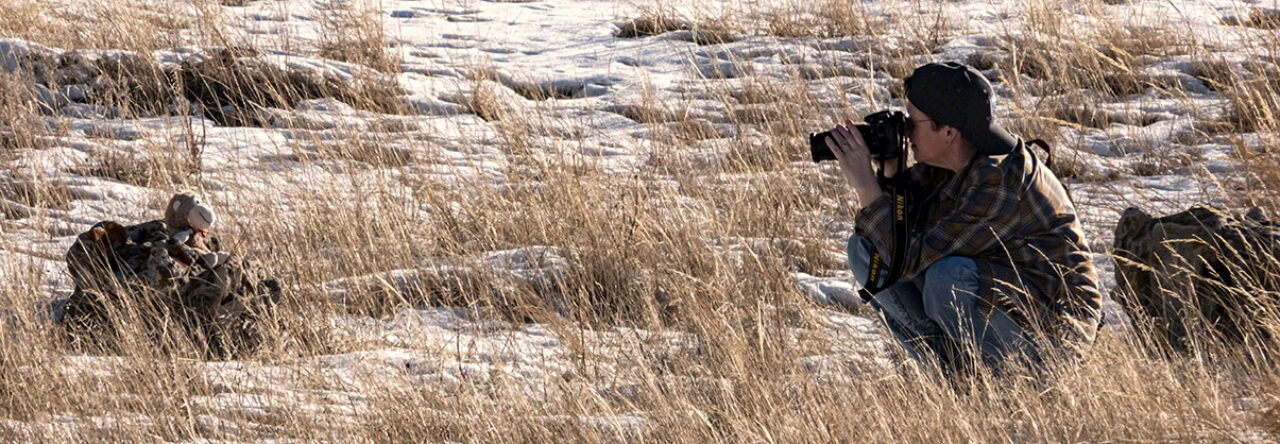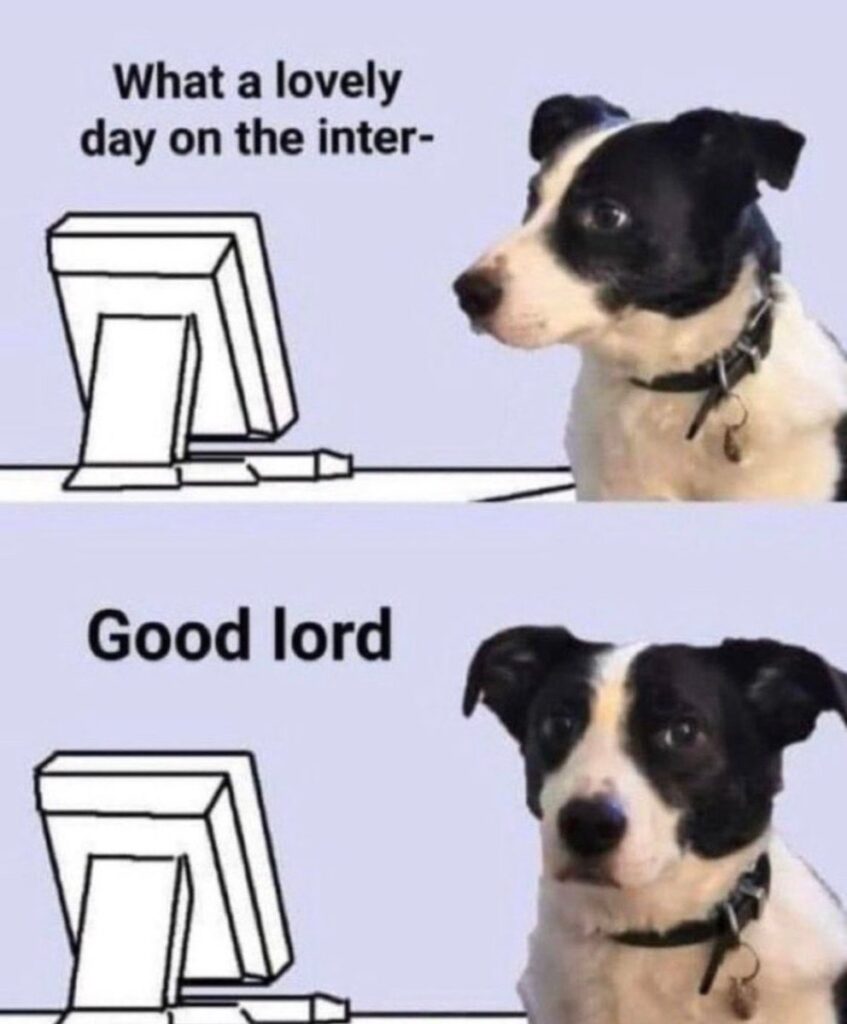After today, I’m not going to revisit thoughts about life without social media anymore. At this time last year, I made my last post on Facebook telling people I was deleting Facebook, the last of my social media accounts, and they were welcome to continue to keep up to date with me here. Those who wished to do so could also text, do lunch, go for hikes, etc.
While some people still criticize me for leaving because it doesn’t affect them negatively, I have no desire to return to an arena which made me feel angry and made me feel less of a person all the time. It absolutely worsened my mental health.
Studies continue to show, mental health improves when people do not participate in this part of the internet designed on dopamine hits. Although I have enjoyed many aspects of the internet across four decades, social media as it is today is not beneficial to others. It’s intrusive, persuasive, and permits casual cruelty.
In 2004, Howard Dean over exuberantly screamed into a microphone and his political career was over. Today, politicians freely tell you women should be second class citizens, all immigrants are rapists and thieves, and mock disabled people, all to the unabashed cheers of the peers who follow of a cult of personality.
We’ve turned to hatred of “the other” because it makes us feel better about ourselves. What was supposed to be a freeing platform of thoughtful discussion has become a plague on humanity.
Since I walked away, I’ve been reading and writing more, even during difficult days. Despite a few hiccups along the way, I find my old focus has mostly returned. In 2018, a longitudinal cohort survey of “adolescents aged 15 and 16 years at baseline and without symptoms of ADHD, there was a significant association between higher frequency of modern digital media use and subsequent symptoms of ADHD over a 24-month follow-up (odds ratio, 1.11 per additional digital media activity).”
The study found modern digital platforms are easily accessible and intensely stimulating, which may lead to ADHD. Adolescents became accustomed to consuming rapidly changing content, training your brain to switch focus frequently. This makes it difficult to switch back to long-term focus, which can affect many parts of daily life, including reasoning and spending time on long tasks.
The dopamine hits you receive from these short snippets of information provide temporary comfort, but do little to prepare a person for difficult or stressful tasks. While more studies are needed, we already see the effects, and not just on adolescents.
We are being conditioned to those dopamine highs. They are designed to influence you to be happy, angry, sad, and to hate.
Another study published in August in the peer-reviewed journal Health Communication, found people who have obsessive urges to constantly keep up with the news are more likely to suffer from anxiety, stress, and ill-physical health.
However, for certain types of people, the conflict and drama that characterize newsworthy stories not only grab their attention and draw them in, but also can lead to a maladaptive relationship with the news. Thus, the results of our study emphasise that the commercial pressures that news media face are not just harmful to the goal of maintaining a healthy democracy, they also may be harmful to individuals’ health.
While further studies are sure to be conducted about the psychological effects of social media, I can, anecdotally, attest social media was a mostly negative aspect of my life. A forthcoming paper in the scientific journal American Economic Review seems to confirm my personal thoughts, at least in regard to Facebook.
It is the first study to “establish causal link between use of the platform and reported worsening in anxiety and depression among college students.”
The study was based on data that dates back to the 2004 advent of Facebook at Harvard University, before it took the internet by storm. Facebook was initially accessible only to Harvard students who had a Harvard email address. Quickly spreading to other colleges in and outside the US, the network was made available to the general public in the US and beyond in September 2006. The researchers were able to analyze the impact of social media use by comparing colleges that had access to the platform to colleges that did not. The findings show a rise in the number of students reporting severe depression and anxiety (7% and 20% respectively).
the methodology also considered any differences in mental health over time or across colleges that were not related to Facebook. This approach enabled conditions similar to those of a ‘natural experiment,’ which would be impossible today now that billions of people around the world use many different social networks.
While the above study looked at the increase in anxiety when Facebook was available early on, a little common sense (and patience for the inevitable followup studies) can show where comparing yourself to your peers can be mentally damaging. Now imagine what happened when shit stirrers, fearmongers, and disinformation groups got on the platform.
Today, my only vice online is Reddit and my RSS news feed. Reddit is different from other platforms, such as Facebook, Twitter, Instagram, Tiktok, or YouTube. I only surf Reddit when I am logged in, so my subreddits are what I see and not whatever the Reddit algorithm thinks I want to see. The main page has 25 links to topics I am interested in – Atheism, AskHistorians, EverythingScience, a variety of Formula 1 subreddits, History, KeepOurNetFree, Keep_Track, Lynxes, Natureisfuckingcute, Nebraska, Privacy, Science, and Technology.
Nothing is shoved at me as I scroll. I’m presented with 25 links and I choose to click on them or not. I rarely click the “next” button at the bottom of the page. I can engage in thoughtful conversation and learn a lot of interesting things on a variety of subjects. While Reddit can be toxic, it isn’t for the majority of my time on the platform. I don’t see people on Reddit presenting an idealized version of themselves. I rarely get angry there. Where I go on Reddit, there are people who genuinely want to help others and have thoughtful discussions.
By all metrics, Reddit has been the better choice for me. In addition, I find links to peer-reviewed studies, conversations about current topics, and a more engaged community which mostly wants to learn about and understand the world around them.
I don’t regret my decision to leave social media. I have lost touch with a lot of people. I still have no idea what my cousin wore to her wedding, what the day was like, or what her husband looks like because I’m not on Facebook or Instagram. I don’t know what people are doing in general. Believe it or not, that’s perfectly acceptable.
Nearly everyone is OK with catching me up when I see them, but there are a few who seem insulted when I don’t know what’s going on in their lives. It was their choice to not keep in touch with me and not respond to texts I sent. That’s OK, too. I simply don’t get pulled into that drama anymore either.
I don’t need Facebook. It needs me. It needs me to be angry all the time. It needs me to be sad that I don’t have the life that other person over there has and to then generate content it can feed to other people. I do not need that kind of interaction. I’m happier without social media where I can spend my time processing the things which overwhelm me instead of lashing out in anger or falling into depression because I can’t do the things others can. If people want to join me in my little corner of the internet, that’s great.
It also allows me to have been able to build upon two valuable friendships, which have become fruitful endeavors into just being in the moment with another person and finding out what they are truly like, and who they really are. At least one of them, was as curious as me in trying to identify which animal droppings were left on the side of the path we were hiking. It’s also learning about how these face-to-face interactions allow me to continue to be me without concern about what others think or if I said the right thing to be “accepted” because they don’t care what dumbass thing I say.
I fully realize social media is fine for a lot of people. For me, leaving has improved my mental health. I’m reading more books. I’ve written more. I’m actively working toward my goals, which currently includes sending out query letters for my memoir and adventures in EMDR. While some things continue to be overwhelming, I’m able to work and process through them even if I do it in isolation.
There are no regrets in me for leaving social media. Life is simpler. Time is spent on what I want to do. Life is more pleasant and peaceful so when the really bad times come, I don’t slide into the depths of despair, wondering if I’ll ever be normal again. I merely look down into the chasm and smile, knowing I can get up and walk away.


Leave a Reply